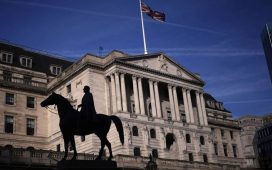Tax paid by freelancers is soaring in the wake of controversial reforms to pay rules, known as IR35, as thousands more workers are being treated as employees, not self-employed.
About £1.5bn is expected to be raised on average each year as a result of rule changes introduced two years ago, according to the Office for Budget Responsibility, the government’s fiscal watchdog, which doubled its previous estimate for the gains generated annually by the measures to £1.5bn.
This follows the government’s decision in 2016 to tighten the rules, making it harder for workers to maintain their self-employed status, where lower tax rates generally apply, and oblige companies to be responsible for determining workers’ tax status.
The figures were welcomed by former HM Revenue & Customs executive chair Edward Troup, who argued that the previous regime gave freelancers too much leeway to minimise tax. HMRC said that reforms were “levelling the playing field” for other employees who did not benefit from such tax advantages.
But the boost to the tax take has been met with concern by industry groups who argued that employers have forced contractors “inside IR35” in an indiscriminate effort to comply with the new tax rules.
“Hirers feel duty bound to apply IR35 even where they shouldn’t be and that is clogging up the labour market,” said Andy Chamberlain, director of policy at IPSE, a body which represents the self-employed. He said tax receipts were a “symptom of inherent flaws in legislation”.
Some contractors have previously argued they were forced to work via unregulated umbrella companies and lost their independence as professionals.
Those deemed genuinely self-employed by their hirer and HM Revenue & Customs can often avoid paying income tax and national insurance. They can set up a personal service company (PSC) and pay corporation and dividend taxes, which are typically lower.
While many were angered by blanket decisions about status that meant they lost out compared with other freelancers, the increase in corporation tax to 25 per cent would in any case make using PSCs less attractive, said Judith Freedman, an emeritus professor at the University of Oxford.
The reforms, introduced for the public sector in 2017 and the private sector in 2021, were intended to reduce the number of “disguised employees” who were regularly employed, but were paid through a limited company for tax purposes.
HMRC said that the number of PSCs had declined since 2016-17, suggesting that the policy had acted as a deterrent. It also found that individuals who switched to payroll in 2021-22 paid around £9,800 more in tax than those who did not switch in the period.
Chancellor Jeremy Hunt in November reversed a decision by his short-term predecessor Kwasi Kwarteng to go back to pre-2017 terms and return considerable leeway to contractors.
“There are, no doubt, companies that are applying IR35 out of an abundance of caution,” said Troup, who argued that the OBR forecasts showed more contractors were in fact employees. “The next steps are not to repeal IR35, but to make sure that it is properly applied.”
Penalties for failing to treat a worker within IR35 were forcing people into falsely-defined employment, according to Dave Chaplin, chief executive of the tax compliance company IR35 Shield. He said that provisions which meant HMRC billed employers in full for all tax liabilities if they made a mistake left them reluctant to treat anyone as self-employed.
Chaplin said HMRC should allow companies to offset any lost tax against tax already paid in an effort to deliver a fairer system. He added that OBR figures demonstrated that people were simply paying “more tax without any of the rights”.
Additional reporting by Mary McDougall











